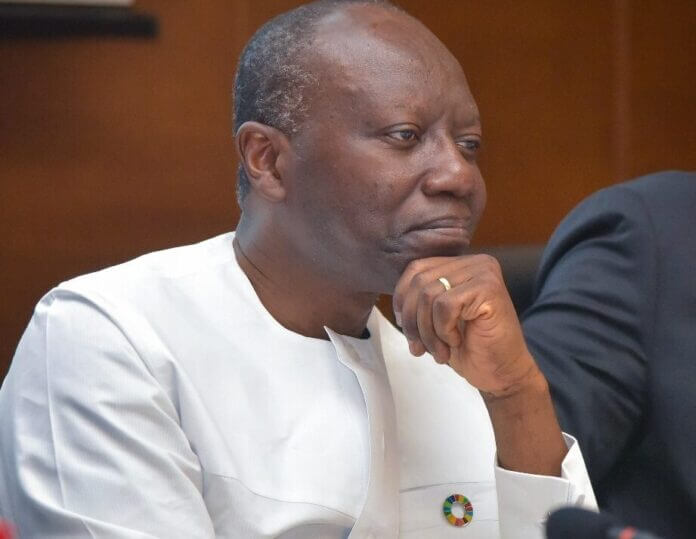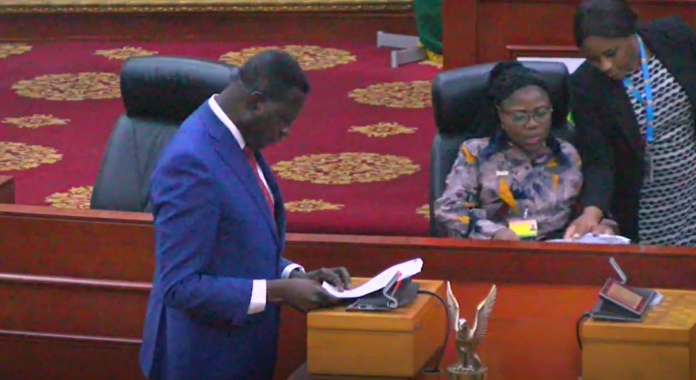Ghana’s Economic Crisis: High Inflation, Unemployment, and IMF Bailout – Solving the Root Causes for Sustainable Growth

Ghana’s economy is in crisis. The country is facing high inflation, high-interest rates, unemployment, and a depreciating currency. The government has been forced to go to the International Monetary Fund (IMF) for a bailout.
There are a number of factors that have contributed to Ghana’s economic problems. These include:
Poor economic management
The government has made a number of poor economic decisions in recent years, such as the introduction of the E-Levy, and wasteful and non-strategic expenditures like those of the National Cathedral when there are glaring challenges that need to be dealt with.
The COVID-19 pandemic
The pandemic has had a significant impact on Ghana’s economy, leading to a decline in tourism, trade, and investment.
The war in Ukraine
The war in Ukraine has also had a negative impact on Ghana’s economy, as it has led to higher energy prices and a disruption in global supply chains.
Government debt
Ghana’s government debt has been rising in recent years, and is now at a level that is unsustainable. This has made it difficult for the government to borrow money to finance its operations, and has led to higher interest rates.
Corruption
Corruption is a major problem in Ghana, and it has contributed to the country’s economic problems. Corruption has led to waste and inefficiency in the public sector, and has made it difficult for businesses to operate.
New Taxes And Levies
These have only increased the cost of doing business and once the businesses transfer these taxes onto their consumers in the form of higher prices, everyone suffers.
One of these is Ghana’s E-Levy and new taxes introduced recently which have had a negative impact on business and economic growth in a number of ways.
The E-Levy has discouraged the use of electronic payments.
The E-Levy is a 1.5% tax on electronic transactions, which has made people reluctant to use mobile money and other electronic payment methods.
This has led to a decline in the use of these payment methods, which has hurt businesses that rely on them. Even though the rate was reduced later to 1%, the government has not come near its projected revenue from the tax. Many have described the E-levy as a nuisance tax that needs to be scrapped.
The new taxes have increased the cost of doing business. The new taxes have increased the cost of doing business in Ghana, which has made it more difficult for businesses to operate profitably. This has led to some businesses closing down, and others to reducing their operations.
The new taxes have dampened investment. The new taxes have dampened investment in Ghana, as investors are now more hesitant to invest in the country. This is because the new taxes make it more expensive to do business in Ghana, and they also make it more difficult to repatriate profits.
The new taxes have led to inflation. The new taxes have led to inflation in Ghana, as they have increased the cost of goods and services. This has made it more difficult for people to afford basic necessities, and it has also hurt businesses that are struggling to keep up with rising costs.
Ghana’s E-Levy and new taxes introduced since 2020 have had a negative impact on business and economic growth in a number of ways. These taxes have discouraged the use of electronic payments, increased the cost of doing business, dampened investment, and led to inflation. These negative impacts are likely to continue until the government takes steps to address them.
The government has taken some steps to address the economic crisis. These include:
The IMF bailout. The IMF bailout will provide Ghana with $3 billion in loans, which will be used to stabilize the economy and implement reforms.
The Local and Foreign Debt Exchange Programmes.
These programs will allow Ghana to restructure its debt, which will make it easier for the government to repay its creditors.
Austerity measures.
The government has implemented a number of austerity measures, such as cutting spending and raising taxes. These measures are aimed at reducing the government’s budget deficit and improving its debt position.
However, these measures are unlikely to be enough to solve Ghana’s economic problems. The government will need to take more fundamental steps to address the underlying causes of the crisis, such as corruption and inefficiency.
Here are some of the things that Ghana can do to solve its economic problems:
Reduce government debt.
This is the most important thing that Ghana can do to improve its economic outlook. The government needs to find ways to reduce its debt burden so that it can borrow money at lower interest rates and invest in its economy.
Fight corruption.
Corruption is a major obstacle to economic growth. The government needs to take steps to root out corruption, so that businesses can operate more efficiently and investors can be confident that their money is safe.
Improve the business environment. Ghana needs to make it easier for businesses to operate.
This means reducing red tape, improving infrastructure, and providing access to finance.
Invest in education and skills training. Ghana needs to invest in its people, so that they have the skills they need to compete in the global economy. This means improving the quality of education and providing more opportunities for skills training.
These are just some of the things that Ghana can do to solve its economic problems.
It will not be easy, but it is essential if the country wants to achieve sustainable growth and development.
In addition to the above, Ghana can also consider the following measures to improve its economy:
Diversify the economy
Ghana’s economy is too reliant on a few commodities, such as gold and cocoa.
The government needs to diversify the economy so that it is less vulnerable to external shocks.
READ: The State must prosecute refugees caught with weapons – Dr Adam Bonah
Promote trade
Ghana needs to open up its economy to trade, so that it can benefit from the global economy.
This means reducing tariffs and other barriers to trade.
Attract foreign investment
Foreign investment is essential for Ghana’s economic growth. The government needs to create a favourable environment for foreign investment so that businesses can invest in the country
These are just some of the things that Ghana can do to improve its economy. It is a difficult challenge, but it is essential if the country wants to achieve sustainable growth and development.
These measures are unlikely to be enough to solve Ghana’s economic problems. The government will need to take more fundamental steps to address the underlying causes of the crisis, such as corruption and inefficiency.
Send Stories | Social Media | Disclaimer
Send Stories and Articles for publication to [email protected]
We Are Active On Social Media
WhatsApp Channel: JOIN HERE
2024 BECE and WASSCE Channel - JOIN HERE
Facebook: JOIN HERE
Telegram: JOIN HERE
Twitter: FOLLOW US HERE
Instagram: FOLLOW US HERE
Disclaimer:
The information contained in this post on Ghana Education News is for general information purposes only. While we endeavour to keep the information up to date and correct, we make no representations or warranties of any kind, express or implied, about the completeness, accuracy, reliability, suitability or availability with respect to the website or the information, products, services, or related graphics contained on the post for any purpose.



 Profile Of Kwabena Boateng, Ejisu MP Elect
Profile Of Kwabena Boateng, Ejisu MP Elect  KNUST student honoured at International Sports Media Awards (AIPS)
KNUST student honoured at International Sports Media Awards (AIPS)  GNAPS calls for urgent subsidy of BECE charges for private schools
GNAPS calls for urgent subsidy of BECE charges for private schools  How to Create Good Study Habits for Exams
How to Create Good Study Habits for Exams  How to Help Your Child Prepare for Exams
How to Help Your Child Prepare for Exams  GES To Query 42 Teachers In The Upper West Region; Here’s Why
GES To Query 42 Teachers In The Upper West Region; Here’s Why